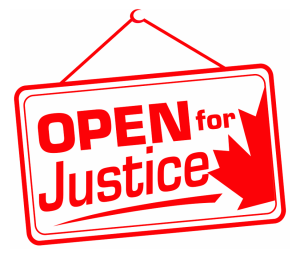On January 17th, the federal government unveiled a long-awaited policy reform.

The Honourable François-Philippe Champagne—Minister of International Trade—announced that Canada will be establishing an independent human rights Ombudsperson to address allegations of abuse by Canadian corporations operating overseas.
For well over a year, rumours have swirled around Ottawa that this announcement was “imminent.” But it wasn’t until two weeks ago that more than a decade of advocacy by civil society groups finally bore fruit.
As an organization that has witnessed the negative impacts of Canadian mining overseas and has heard repeated calls from partners for mechanisms for redress, we at MCC are grateful for this new policy direction.
Called the “Canadian Ombudsperson for Responsible Enterprise,” this position will put the Office of the Extractive Sector Corporate Social Responsibility Counsellor (set up in 2009) out of commission. The Ombudsperson will, at least initially, continue to focus on mining, oil, and gas companies, while also adding the garment industry to the mix.
I doubt that many will be sad to see the CSR Counsellor’s office go. With no political independence (the Trade Minister is, after all, its boss) and no mandate to investigate complaints, make binding recommendations, or require companies to participate in proceedings, this position has been hamstrung by inherent flaws and limitations from the get-go.
Indeed, the CSR Counsellor was, from day one, an inadequate response to long-awaited calls for action.
Dating back to the 2007 National CSR Roundtables, experts from multiple sectors (including industry) have been advising the government to establish an independent human rights Ombudsperson “with teeth” (something other than the voluntary, non-binding, market-based CSR incentives the government usually prefers). Ever since those roundtables, civil society groups have been working hard to keep this “ask” alive-and-kicking on the political agenda.
In recent years, the Open for Justice Campaign—an initiative of the Canadian Network on Corporate Accountability and MCC partners like KAIROS and the Canadian Council for International Cooperation—has rallied Canadians to push for the establishment of an Ombudsperson as well as for legislated access to Canadian courts (the latter of which also has gained steam thanks to several civil cases winding their way through court on our own soil).
Now, this decade of sustained advocacy finally has paid off.
Touted as the “first of its kind in the world” and part of the government’s “progressive trade agenda,” the newly-announced human rights Ombudsperson—and its promised multi-stakeholder Advisory Body—will provide a fresh start for Canada to take leadership for responsible business conduct abroad.
Last week, MCC joined the voices of Canadian civil society in welcoming the Ombudsperson announcement in a letter to the Trade Minister. “If properly implemented,” the letter says, “this position will help hold Canadian companies accountable for human rights violations overseas, provide remedy for victims of abuse, and prevent future harm for local communities.”
“If properly implemented…”
Herein lies the crux of the matter.
As the government now begins the work of building the office and hiring its very first Ombudsperson, key questions still need to be firmly answered.
Will the office…
…be fully independent from business and government at all stages of the process?
…be properly funded and staffed, so as to undertake complex investigations?
…be entirely transparent, making its progress, findings, and final recommendations for remedy publicly available?
…be able to monitor progress on recommendations and settlement agreements?
and, most importantly…
…have the authority to summon witnesses and compel disclosure of corporate documents?
The Government of Canada has the opportunity to take a real, global leadership role here. And civil society partners like KAIROS are “cautiously optimistic.”
But the credibility of the office hinges on its implementation.
Lend your voice (with our easy email tool!) in thanking the Canadian government and expressing your support for an effective and fully independent Ombudsperson with strong investigative powers!
By Jenn Wiebe, MCC Ottawa Office director
***Check out CNCA’s great infographic on criteria for an effective Ombudsperson
